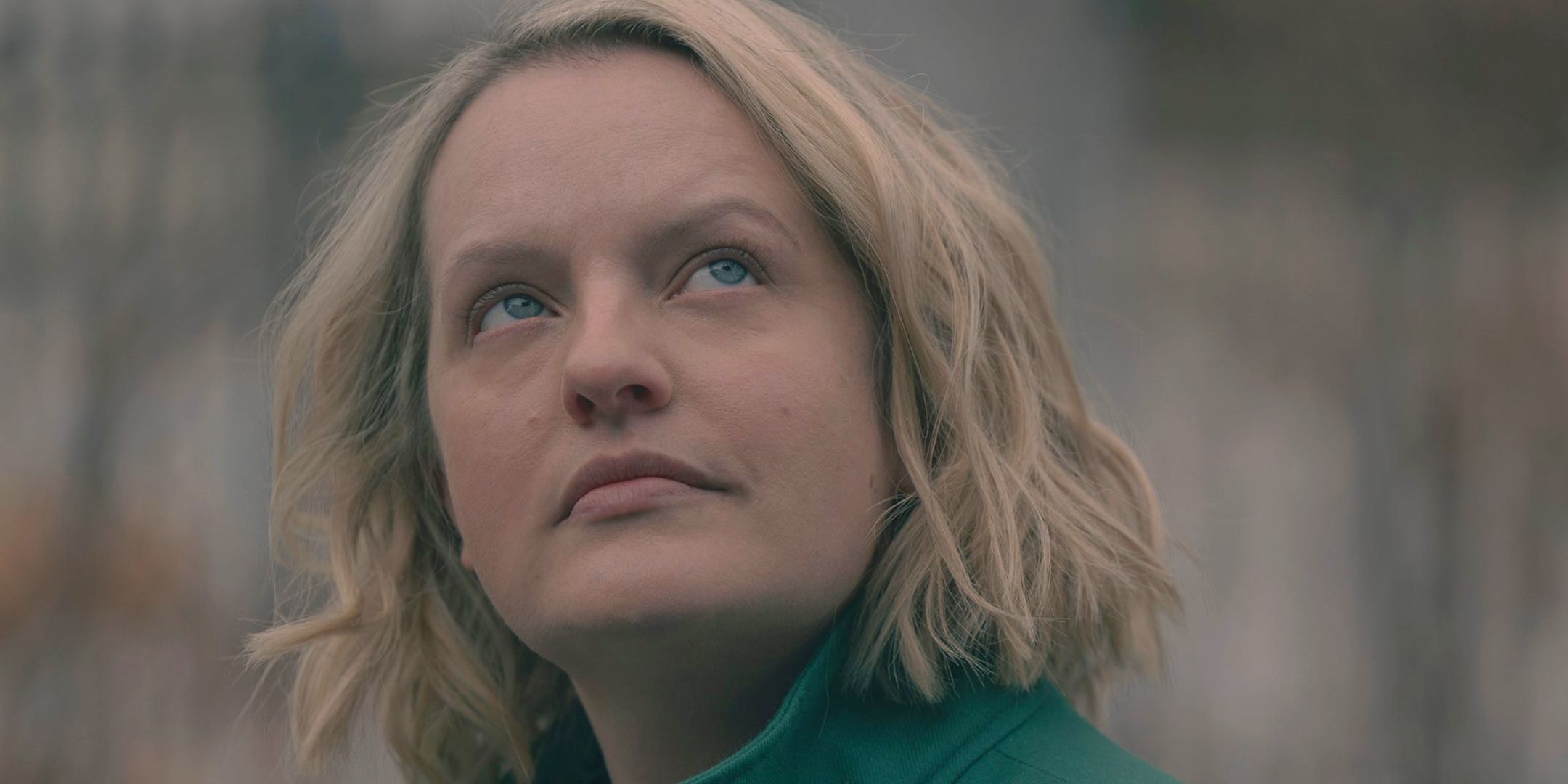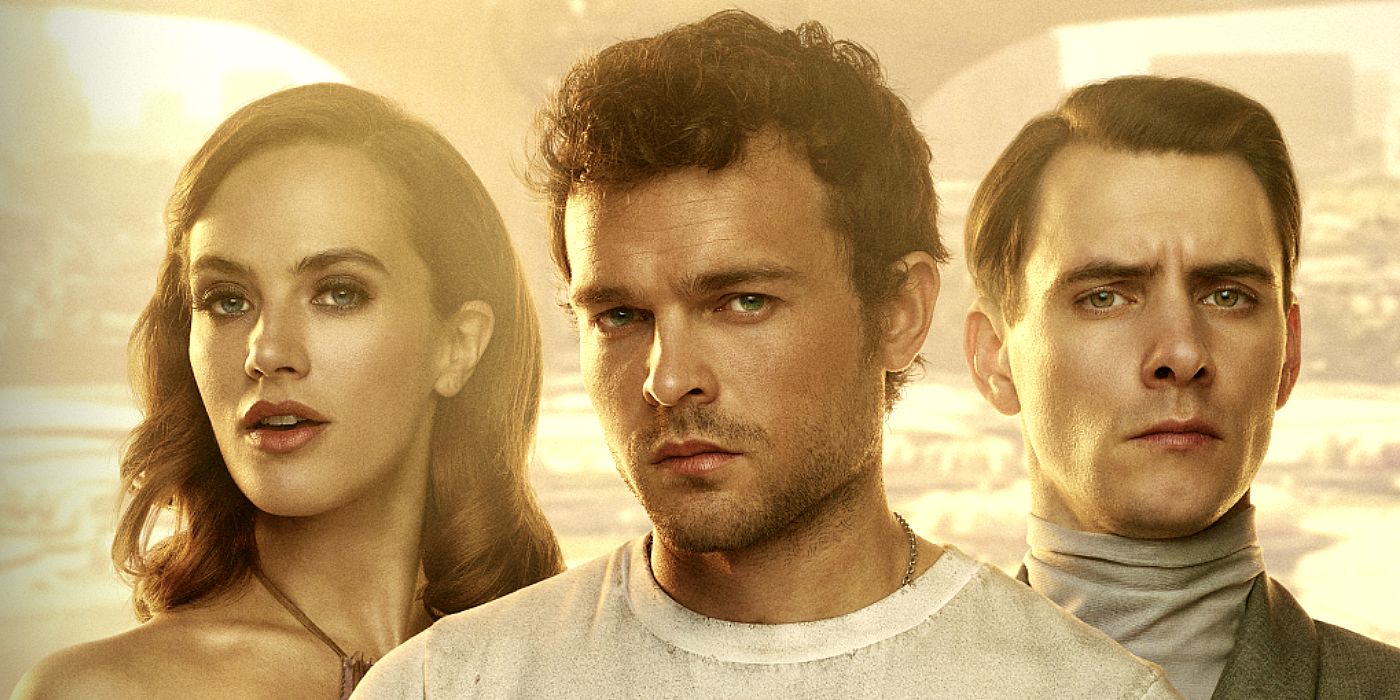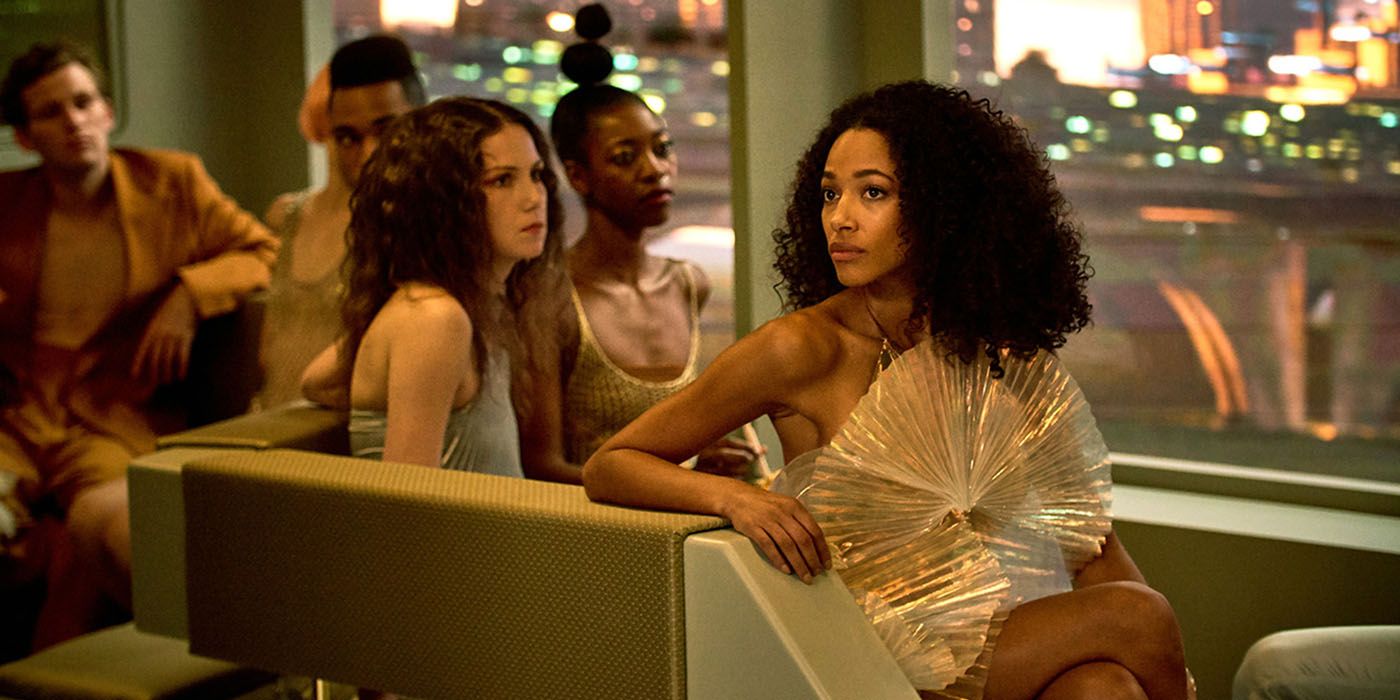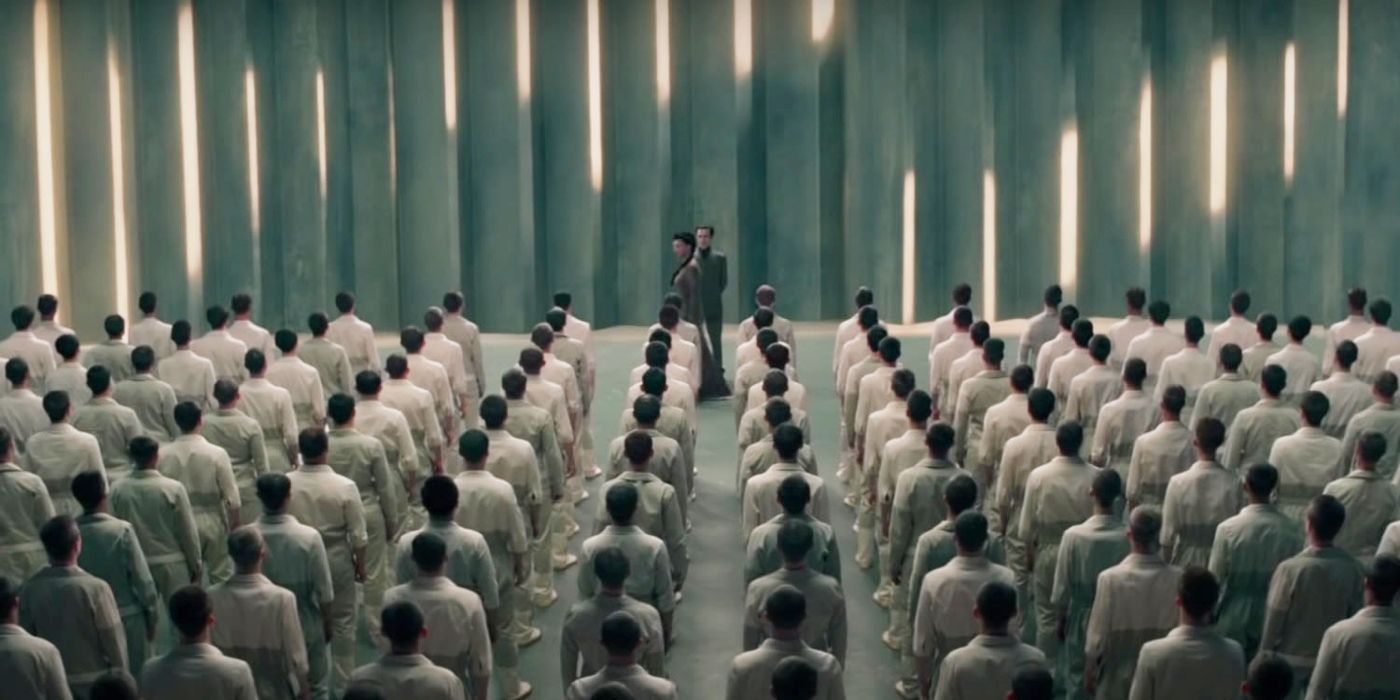
After the conclusion of “The Handmaid’s Tale”, numerous fantastic TV series and film adaptations based on previously censored books can serve as compelling alternatives. Since 2017, Hulu has faithfully brought the novel to life on screen while also expanding upon elements from Margaret Atwood’s “The Handmaid’s Tale” to delve deeper into its characters and dystopian setting. Consequently, this adaptation has given viewers worldwide a chance to grapple with a frequently suppressed book that carries strong messages about personal freedom and the patriarchy.
Following the finale of “The Handmaid’s Tale,” viewers might want to shift their focus towards other engaging series or films. A captivating choice could be adaptations based on other banned books, as many such stories are suppressed due to their ability to question societal norms, stimulate critical thinking, and inform the public. It’s unfortunate that false justifications are often provided for banning books, but these gripping TV shows and movie adaptations provide a platform for audiences to immerse themselves in compelling narratives while forming their own perspectives. Furthermore, they can inspire readers to delve deeper into literature.
10. The Hunger Games Movie Series (2012-2015)
- Reasons for book banning: Violence, offensive language, anti-family, satanic, and ridicule of hierarchical societies
After finishing The Handmaid’s Tale, a gripping dystopian series, you might find it captivating to delve into the original Hunger Games films next, as they offer another chilling tale with themes that eerily resonate with current times. The narrative unfolds in a dystopian America, rebranded as Panem, where the wealthy Capitol orchestrates a televised competition known as “The Hunger Games.” In this contest, one tribute from each of the 12 districts is forced to battle to the death, serving as a means to quell any rebellions.
From my perspective, though the stated reasons for the ban of these works in numerous U.S. locations might seem valid on the surface, I find some of them hard to comprehend. It seems more plausible to me that the bans are primarily due to the anti-establishment and anti-government themes prevalent in both the books and films. In a strange twist, the attempts to censor The Hunger Games have only served to heighten its significance and popularity among many.
9. Forever (2025)
- Reasons for book banning: Immoral, too graphic, “pornographic,” and depictions of contraception
40 years after its initial publication, Judy Blume’s groundbreaking novel Forever continues to ignite debate and draw controversy from conservative and religious circles. In 2025, Netflix released a TV show adaptation that mirrors the book’s poignancy. The narrative unfolds around two teenagers who navigate the tumultuous world of first love, encountering both triumphs and trials. At the heart of their journey, they make an informed decision to engage in safe sexual activity together. As a movie critic, I found this portrayal of teenage love and responsibility to be as compelling and thought-provoking as the original work.
Although they appear to be quite distinct at first glance, “The Handmaid’s Tale” and “Forever” make excellent pairings for viewing. The former Hulu series delves into the chilling potential consequences when women’s reproductive rights are taken away, while the latter Netflix show explores the uplifting possibilities that can emerge when such rights are accessible.
8. The Great Gatsby (2013)
- Reasons for book banning: Adultery, sexual themes, explicit language
F. Scott Fitzgerald’s The Great Gatsby and Margaret Atwood’s The Handmaid’s Tale are two well-known works of literature that tackle significant themes, often studied in schools. However, they have been criticized and even banned in various places due to their content. Fortunately, the movie version of The Great Gatsby can be enjoyed after completing The Handmaid’s Tale on screen.
In the era of jazz, the narrative unfolds around a man named Jay Gatsby, a wealthy individual who stages extravagant gatherings in an attempt to captivate Daisy Buchanan, the woman he’s long admired. As Nick Carraway, a neighbor, Gatsby finds himself entangled in, Gatsby unwittingly pulls him into a world filled with luxury and alcohol consumption.
The film isn’t quite up there with a classic work of literature, but it remains a pleasurable retelling of the tale and offers insightful observations on the fallacy of the so-called “American Dream.
7. A Clockwork Orange (1971)
- Reasons for book banning: graphic violence and “obscene and/or pornographic material”
Readers who appreciate the grittier aspects of The Handmaid’s Tale might find solace in watching A Clockwork Orange. This novel by Anthony Burgess has sparked continuous debate since its debut, and both the book and film versions have been banned on numerous occasions over the past fifty years. The story is set in a dystopian society and focuses on a highly violent teenager named Alex, who is compelled to undergo extreme government-backed rehabilitation programs to control his cruel impulses. It delves into themes such as nature versus nurture, teenage rebellion, and the question of whether it’s right to force someone to change.
The film version of A Clockwork Orange, helmed by Stanley Kubrick, intensifies the existing grim storyline with a rougher, thought-provoking perspective, employing his unique style and visuals. I would warn potential viewers who are susceptible to distress over sexual violence, as this movie does not shy away from such themes.
After finishing the movie, it’s beneficial to delve into the notorious Chapter 21 of “A Clockwork Orange,” a part Kubrick decided not to include. Movie-goers might also find it insightful to visit The New Yorker and read Burgess’ article titled “The Clockwork Condition.” In this piece, he ponders over his novel and assesses how the film influenced the message conveyed in the story.
6. The Perks Of Being A Wallflower (2012)
- Reasons for book banning: Sex, LGBTQ+ content, drug use, and profanity
Reading or watching “The Handmaid’s Tale” isn’t an effortless task, yet its significance lies in the profound themes it addresses. Likewise, “The Perks of Being a Wallflower,” though challenging due to its heavy subject matter, is truly rewarding.
The narrative revolves around a shy ninth-grader named Charlie, who navigates his mental health issues and past traumas as he experiences new milestones such as forming friendships, falling in love, and dabbling with substances. Both book and movie adaptations maintain the central themes of mental health and coming-of-age. I personally find the 2012 film superior to the book because it provides a more expansive exploration of each scene. Furthermore, Logan Lerman delivers an exceptional performance in the movie.
5. The Hate U Give (2018)
- Reasons for book banning: Profanity, sexual content, anti-police messages, and “critical race theory”
It’s likely that many people who appreciate The Handmaid’s Tale also have an interest in other social concerns, given that it’s a powerful warning against the dangers of female oppression. If you’ve finished watching the Hulu series, you might want to check out The Hate U Give, another compelling story that focuses on racial issues rather than gender.
Following the critically acclaimed novel, The Hate U Give, tells the story of Starr Carter, a teen girl who navigates life between a predominantly black neighborhood and a white prep school. However, her dual existence is put to the test when her close friend Khalil meets an unfortunate end due to police violence. This heart-wrenching narrative serves as a poignant examination of racism and police brutality, a topic that continues to face opposition, with some attempts at banning it proving successful.
4. The Color Purple (2023)
- Reasons for book banning: Sexual content, violence, religious objections, rape, incest, and “African history”
Following the conclusion of The Handmaid’s Tale, another engaging banned book adaptation is The Color Purple. In this adaptation, Cecile endeavors to discover strength amidst being separated from her family and enduring an abusive relationship, as portrayed by Alice Walker in her book. Regarding the on-screen interpretation of this story, there’s no incorrect choice when it comes to viewing it.
1985’s film version of the movie is incredibly touching, yet it was unfortunately overlooked at the Oscars. On the other hand, I personally prefer the 2023 adaptation of The Color Purple due to its compelling narrative, exceptional actors, and the fusion of music from the Broadway musical as well as some fresh tunes. In essence, both versions offer a wonderful choice for individuals seeking adaptations of banned books.
3. Looking for Alaska (2019)
- Reasons for book banning: Inappropriate language, sexually explicit scenes, and LGBTQ+ content (note: there are no LGBTQ+ characters or scenes in the book)
After finishing The Handmaid’s Tale, some viewers might be seeking a thought-provoking show that’s less grim than a dystopian nightmare. A fantastic alternative could be the Hulu adaptation of John Green’s Looking for Alaska, though it is no longer on streaming services, you can still purchase it on Apple TV or Fandango At Home. The narrative revolves around a high school student named Miles “Pudge” Halter, who finds himself at a boarding school and relies on his new companions to help him deal with an unforeseen calamity.
Seeking understanding as to why “Looking for Alaska” often appears on lists of contested and prohibited books, it’s worthwhile hearing the author’s perspective. In his own words, he explained… (The rest of the sentence is the same.)
The screen version of Looking for Alaska retains its profound impact, delving deeply into themes such as sorrow and melancholy with unflinching authenticity. Moreover, the series offers a richer portrayal of Alaska Young, transcending the stereotype of the whimsical, romantic female character.
2. Catch-22 (2019)
- Reasons for book banning: Controversial content and profanity
The narrative revolves around Yossarian, a young Air Force bombardier during WWII, who attempts to escape the war by feigning insanity. Yet, he becomes ensnared in a complex predicament where the logic suggests that requesting to be released due to insanity is an action only sane individuals would take.
Given the immense popularity of the 1961 novel Catch-22, it was highly unlikely that any subsequent adaptation could match the brilliance of Joseph Heller’s work. However, despite these high expectations, the 2019 miniseries remarkably succeeded in adapting the original story and its powerful anti-establishment, anti-war themes.
In simpler terms, the actors really pour their heart into each character, and since it’s a miniseries instead of a film from the 1970s, it delves more deeply into the story. With only six episodes, Catch-22 is easy to watch in one sitting but leaves a powerful impression.
1. Brave New World (2020)





- Reasons for book banning: Sexual promiscuity, drug use, “anti-religion, anti-family, and blasphemous content” (via Banned Books Library)
A fantastic sequel for fans of The Handmaid’s Tale’s dystopian narrative would be the 2020 TV rendition of Aldous Huxley’s Brave New World. The dystopian tale delves into a society where people are repressed yet believe they’re content. Despite its brief run, it offers an enchanting storyline, characters, and visuals that keep viewers enthralled.
Aldous Huxley’s book, Brave New World, contains casual racist and misogynistic elements that have dated poorly, yet the adaptation softens these aspects while preserving its strongest points. Similar to The Handmaid’s Tale, Brave New World raises concerns about the control of women’s bodies and reproduction. Unlike the Handmaids who are compelled to reproduce against their wishes, the women in Brave New World are prevented from having children, even if they desire it.
Fundamentally, these two narratives explore themes of conformity vs. autonomy and control vs. freedom, with a focus on the essence of being human and what it truly signifies to be human.
Read More
- PI PREDICTION. PI cryptocurrency
- WCT PREDICTION. WCT cryptocurrency
- Gold Rate Forecast
- Guide: 18 PS5, PS4 Games You Should Buy in PS Store’s Extended Play Sale
- LPT PREDICTION. LPT cryptocurrency
- Solo Leveling Arise Tawata Kanae Guide
- Despite Bitcoin’s $64K surprise, some major concerns persist
- SOL PREDICTION. SOL cryptocurrency
- Gayle King, Katy Perry & More Embark on Historic All-Women Space Mission
- Jack Dorsey’s Block to use 10% of Bitcoin profit to buy BTC every month
2025-06-01 16:59